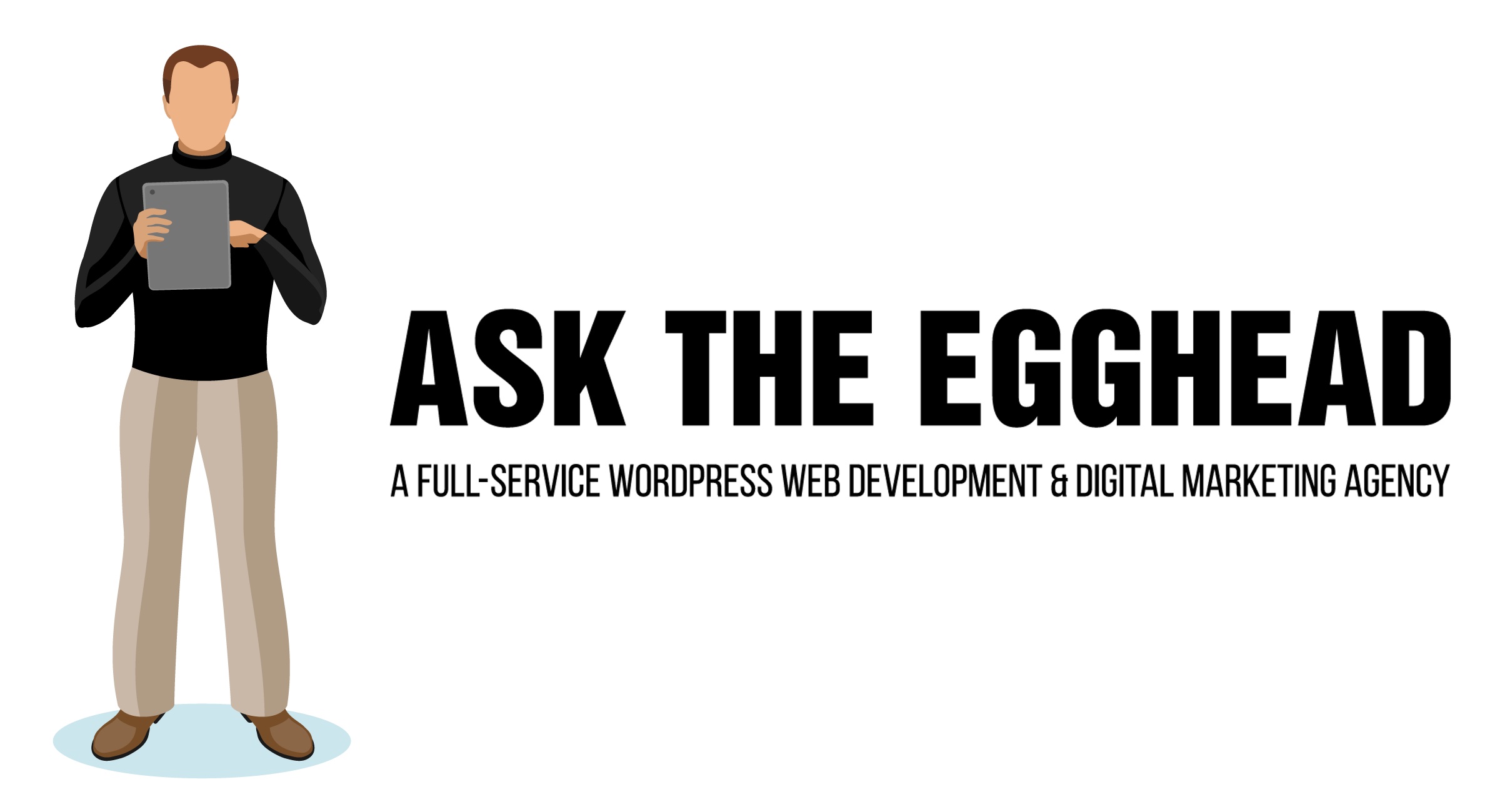Being a freelancer is awesome. It’s hard work, but it’s awesome. I spent nearly a decade teaching college English before I struck out on my own as a freelancer, and I don’t regret the career change even a little. When I first made the transition, I knew I wanted to work with WordPress. The decision I had to make though, was whether or not I should go the freelance route, or if I should I go into business for myself as a solopreneur?
WordPress is equally suited to both, but there can be some misunderstanding about the differences in the two.
The WordPress Freelancer
Being a freelancer holds a certain mystique. The fantasy is you sitting at home, not wearing pants, working on exactly what you want to be working on, being your own boss.
The reality, however, is…a bit different.
While, yes, there are days where you never think about pants, the reason is most likely because you are so busy. Freelancers rarely work on whatever they want, and being your own boss as a freelancer is a quagmire of kinda-sortas.
Whether you’re a designer, developer, or content creator, your time is probably not going to be spent on your pet projects. You, as a WordPress freelancer, are at the mercy of your clients. They’re not your boss, but you also rely on them to get paid. So while you do work for yourself, you can’t simply make your own decisions about a project.
You still have oodles of freedom, though. You get choice clients and projects, as well as choice of working location (and re:pants, dress code). But you are essentially doing someone else’s work. You’re a contractor, a dev for hire, a WordPress mercenary.
Freelancers are self-employed, but they are not independent. They are dependent on others for their livelihoods, which is not a bad thing. Working with others so closely builds professional bonds, develops friendships, and fosters learning and development. In the time I’ve been freelancing, my skill set and network has expanded more than it did during the near-decade at the college. Freelancing is an amazing option for extroverts like me because the regular interaction with clients is energizing.
The WordPress Solopreneur
The WordPress solopreneur, on the other hand, is far closer to the fantasy of the freelancer than the freelancer itself. I know it sounds crazy, but hear me out. As a solopreneur, you set your own hours, you pick your own projects, and you don’t have clients to find and negotiate with.
The big difference between a freelancer and a solopreneur is that a solopreneur is the business, while a freelancer works for the business.
Despite being closer to the fantasy, when it becomes reality, the solopreneur route is honestly a lot harder than simply freelancing. Whereas a freelancer may be hired to recreate a pixel-perfect CSS version of the design PDF AwesomeCo gave them, that’s their job. They code, they tweak, they make their work match AwesomeCo’s, and they get paid.
The solopreneur, however, is AwesomeCo and designs the PDF, recreates it in pixel-perfect CSS, manages the transition from staging to production, handles the marketing and PR to get people to the new site, and the customer service from the new site design’s bugs. All on top of the day-to-day of AwesomeCo’s business itself.
Keep in mind, this is not bashing solopreneurship. There are a great number of people out there who are magnificently cut out for this kind of work. Those people are talented and skilled in many areas, self-motivated, disciplined, and driven. They have great ideas, and they know precisely how to execute them.
They still get the benefits of freelancing–choice of work location, choice of projects, etc.–but they are also independent and answer to no one but themselves.
A Solopreneur is not an Entrepreneur
Some of the confusion around solopreneurship also centers around how it differs from entrepreneurship. I mean, going out and starting your own business–whether you’re the only employee or not–is entrepreneurship, right?
Well…no.
Many entrepreneurs strike out on their own to begin their companies, that’s true. The difference, though, is they don’t intend to be alone forever. They don’t see themselves as the business. Their intent is to grow the company into something larger than themselves, into something that takes on a life of its own. Nick Roach didn’t start Elegant Themes with the mindset that he’d be able to design, develop, and market every product the company would ever produce. He wanted to build a community around those products.
Entrepreneurship is about company growth and expansion. Your goal will be to bring together the perfect team to create the perfect product or service. Solopreneurship is about taking your own ideas, nurturing them, and doing literally everything you can to make them (and thus yourself) successful. You aren’t building a team; you’re building a better you.
Similarities
Regardless of if you go the freelance route or strike it out as a solopreneur, there are some things that you’ll have to deal with either way.
You Will Be Self-Employed
Being self-employed is great. Paying taxes while being self-employed…not so much. The same goes for health insurance. Having it is wonderful; paying for it all yourself…well, you understand. Whether you’re a freelancer or solopreneur, you’re operating as a sole-proprietorship or as an individual. There are some muddy tax and business legality issues with choosing which way to go, so make sure you read up on what to expect either way.
It. Will. Consume. You.
Whichever way you go, your time will be consumed. Your mental energy will be consumed. And your physical space will be consumed. One of the most important skills a one-person-business person must learn is time management because if you don’t, you will end up working weekends, nights, holidays, and taking up friend time, family time, and alone time.
Going into business for/by yourself, you kind of expect that. But some of the best advice I was given when I started out was “take weekends to just disconnect.” As a freelancer, I have much easier of a time doing that than solopreneurs, sure, but even they can’t work 24/7. Burnout is real, and fatigue and exhaustion are legit health issues.
Not to mention that since I started freelancing, most of my side-hustles have fallen aside as my time has been spent working on other people’s projects and seeking out new clients when those projects are done. Solopreneurs have a similar issue: they have to prioritize the one idea they base their business around at the expense of all the other new-and-shiny ones that pop up.
You May Not Get Paid.
I am personally super lucky. I’ve not had an unpaying client yet. But I will. Freelancers live off invoice due dates, hoping against hope sometimes that their clients send the money by the date on the bill. Some (most?) of the time they do. Other times…well, make sure you have a good lawyer.
Solopreneurship runs similarly. Sometimes you will wait on clients to get payments to you, while other times, you will click refresh over and over to see if any new sales have come through in the last 15 seconds.
No matter what, you won’t be getting a regular paycheck. So you need to learn to budget and build a nest egg.
Differences
For all of the ways these paths are similar, they do fork at some points, too.
Subcontracting and Outsourcing
Solopreneurs have the skills and ability to do everything for their businesses. Sales, marketing, design, customer service, accounting, whatever. But they may not always have the time or the resources. While they are a one-person business for sure, there will be times when deadlines and extenuating circumstances (or simple inability–it happens!) make solopreneurs contract out some work. Maybe they need a better logo designed than they can do themselves, or they just don’t have enough hands to pack and send the newest batch of orders.
It’s not uncommon for a solopreneur to contact a freelancer for a one-off or recurring gig. Or maybe they’ll hire a temp or get an intern for a short period. They have to be careful, though, because those costs eat into their own profits.
Freelancers subcontract, too, but not in the same way. A freelancer will take on a client like AwesomeCo to build The Next Big App, but maybe they can’t write a line of Swift. So they subcontract a developer, work with them to code the software, issue them a 1099 that’s built into AwesomeCo’s invoice that’s then paid in full to the freelancer. In the end, they’re not out any money, while a solopreneur is.
Number of Hats
As a freelancer, you will tend to do one thing. You will pick your specialty, and you will do that well. Maybe you are a web designer or a back-end developer. You may work with fifteen different clients, but you may be writing PHP or JavaScript for all of them. Maybe specialize in logo design or wacky typography. That’s your shtick, and you do it well. Different clients, one hat.
As a solopreneur, though, you don’t get that luxury. You have to be good at a number of things (or at least passable) to keep your business afloat. You will be sales manager, marketing director, spokesperson, and HR every single day. What needs to be handled most immediately determines which hat you wear at any given time.
Structure
Because the number of hats solopreneurs and freelancers wear, their days tend to look a bit different. You will probably have pretty structured days as a freelancer. Time management comes into play a lot because you may set up Monday for AwesomeCo’s website, Tuesday for billing and admin, and Wednesday for meetings. You will likely have different deadlines that you will schedule out and work on in order of importance and/or urgency. And yes, you may get an emergency call from a client now and then, but your calendar will mostly show you what to expect.
Solopreneurs, though, will have no idea. Because they do everything, they are at the whim of circumstance. You can’t say that Monday will be dedicated to billing and administration because there might be a huge order for a thousand of your products that has to be shipped. Or maybe there’ll be a return you have to handle in the middle of the day. Perhaps your marketing goes viral and your website gets punched in the throat by Reddit. Freelancers won’t have to worry about all of these–only the ones the solopreneur contracts them to deal with.
So…Which is Best for You?
That’s not an easy question to answer. It’s not a question I can answer, anyway. As you’ve seen, the solopreneur takes a completely different set of skills than a freelancer does. Neither of them is necessarily better than the other, but I would probably tell you to carefully consider before attempting the solopreneur route. Burnout and failure-rate are high in solopreneurship, and while not everyone can make it as a freelancer either, it’s worth knowing that being a WordPress solopreneur is higher risk than being a WordPress freelancer.
Being a solopreneur is high risk. But with that risk comes the chance at a much higher reward than freelancing. It’s not often that freelancing can be considered the more stable option, but in this case it is. Either way you go, you’re relying on yourself, and in the end, it’s up to you to know your own limits.
Now, go get to work. I believe in you.
Article thumbnail image by OvidiuTepes / pixabay.com
The post The Difference Between a WordPress Freelancer and Solopreneur appeared first on Elegant Themes Blog.




